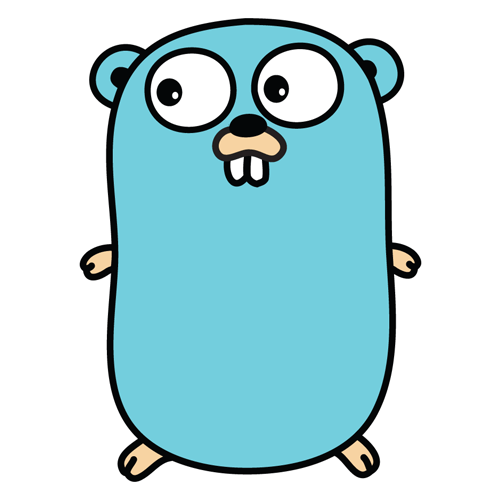Drive sales on autopilot with ecommerce-focused features
See FeaturesRead summarized version with
One thing that’s often repeated by new joiners at Omnisend is that here, people genuinely live by the company values and embrace its culture. And a big part of that is team play and trust. It’s truly built into how each team works.
One of the clearest examples of that trust is the company’s approach to hiring developers.
Even though most of Omnisend’s backend runs on Go, new engineers aren’t expected to be Go experts when they join. What matters more is curiosity, adaptability, and a willingness to learn. Or in other words — Omnisend hires for mindset, not for syntax.

Shifting gears
For our Software Engineers Agris Šuminskas, Povilas Žvirblis, and Edgar Reis, that mindset came into practice from day one. All three came from different technical backgrounds — Java for Agris, C# for Povilas and Edgar — but shared the same challenge: learning Go on the job.
Agris remembers being excited about the opportunity: “I was excited to learn a new programming language while solving real-world problems,” he says. “I already had experience with multiple languages, so it felt like another way to improve myself.”
Povilas, however, was a bit more cautious at first: “I was a little surprised,” he admits. “My first thought was, ‘Why Go?’ But when I realized that many people here came from other stacks too, I felt confident I could make the shift.”
And Edgar saw the change as part of the fun: “I was kind of into it, as I was actually looking for a company that uses a less common language.”
The blend of curiosity and confidence reflects Omnisend’s culture so well — continuing to master what you’re already good at might be beneficial, but the willingness to explore new things is what drives this team forward.
Learning on the go
The transition to Go turned out to be smoother than expected — partly because of the language’s simplicity, and partly because of the environment they found themselves in.
“Go is a very simple language — sometimes too simple,” laughs Povilas. “I miss some of the syntactic sugar from other languages, but that simplicity helps you get productive really fast. I was learning on the go (pun intended), and my first production change happened in the first week.”
For Agris, it was more about reawakening old habits than learning something completely new.
“I had to remember what pointers are,” he says. “I hadn’t used them since university. Also, I still haven’t gotten used to those single-letter variable names — it feels barbaric,” laughs Agris.
And while Edgar jokes that “any code is production-ready if you’re brave enough,” all three engineers share a quiet confidence rooted in the same thing: a team that trusts them to learn by doing.
At Omnisend, developers are encouraged to grow through collaboration and autonomy. Sure, mistakes happen, but they’re simply treated as part of the process.
Trust over checklists
Omnisend’s engineering culture runs on trust, not checklists. Instead of strict guidelines or approval chains, teams are trusted to figure things out. And that’s what helps good engineers become great ones.
“The more senior you are, the less a programming language matters,” says Povilas. “At the end of the day, it’s just another tool under your belt. The important skills are problem-solving, decision-making, and architecture — knowing when to make tradeoffs.”
It’s a sentiment that echoes across the team. Agris points out that engineers who embrace this mindset are the ones who thrive:
“Engineers with strong foundations don’t see learning a new language as a barrier,” he says. “It’s part of the craft.”
At Omnisend, that philosophy extends beyond individual skills. Teams own their scope, make technical decisions, and are accountable for results. That sense of ownership influences how developers perceive both quality and impact.
“Each team owns its scope,” explains Povilas. “That freedom works because people here are responsible. When you take care of your area, life gets easier. Neglect it, and pain becomes a good teacher.”
Agris adds that the company’s iterative, feedback-driven approach makes the learning process feel safe and supportive.
“We release iteratively and validate in small batches,” he says. “It’s less error-prone and easier to learn. Most of my colleagues are senior, collaboration is encouraged, and you always have support when you need it.”
Growing beyond the code
For all three developers, learning Go ended up being less about picking up a new language and more about expanding how they think.
“Code is just a reflection of the self,” says Edgar. “Every new language is like learning to dream in a different syntax.”
That shift in perspective is something Povilas credits Omnisend’s culture for: “I became a better developer here, but not because of Go,” he says. “It’s about how we build products — thinking about impact, not just lines of code.”
And Agris sees every new language as another opportunity to grow: “Each new technology you learn gives you something new to draw from later,” he says. “It’s experience you can reuse anytime.”
Be curious and just do it
If there’s a theme that ties all their stories together, it’s curiosity and courage — the willingness to try something new even when it feels uncertain.
“You can always switch back,” says Povilas. “But if the only thing holding you back is fear of the unknown, take the leap.”
Agris agrees: “It’s not that difficult. You already know the main concepts — it’s just syntax. Especially with Go, there’s not that much of it.”
And leave it to Edgar to say it best: “Learning a new language mid-career is like refactoring your soul — confusing, messy, but ultimately beautiful. The syntax fades, but the journey compiles perfectly in the heart.”
Interested in joining Omnisend? Check out our open positions here and see how you can be part of the team!
TABLE OF CONTENTS
TABLE OF CONTENTS


No fluff, no spam, no corporate filler. Just a friendly letter, twice a month.

 OFFER
OFFER







